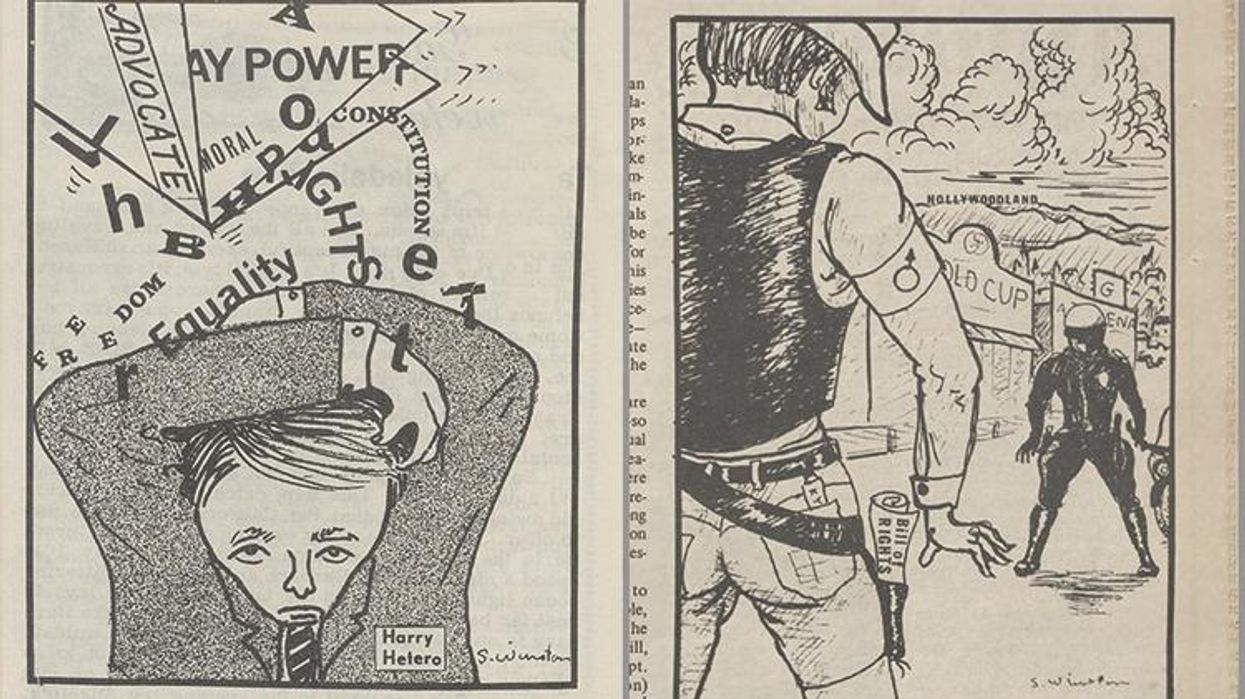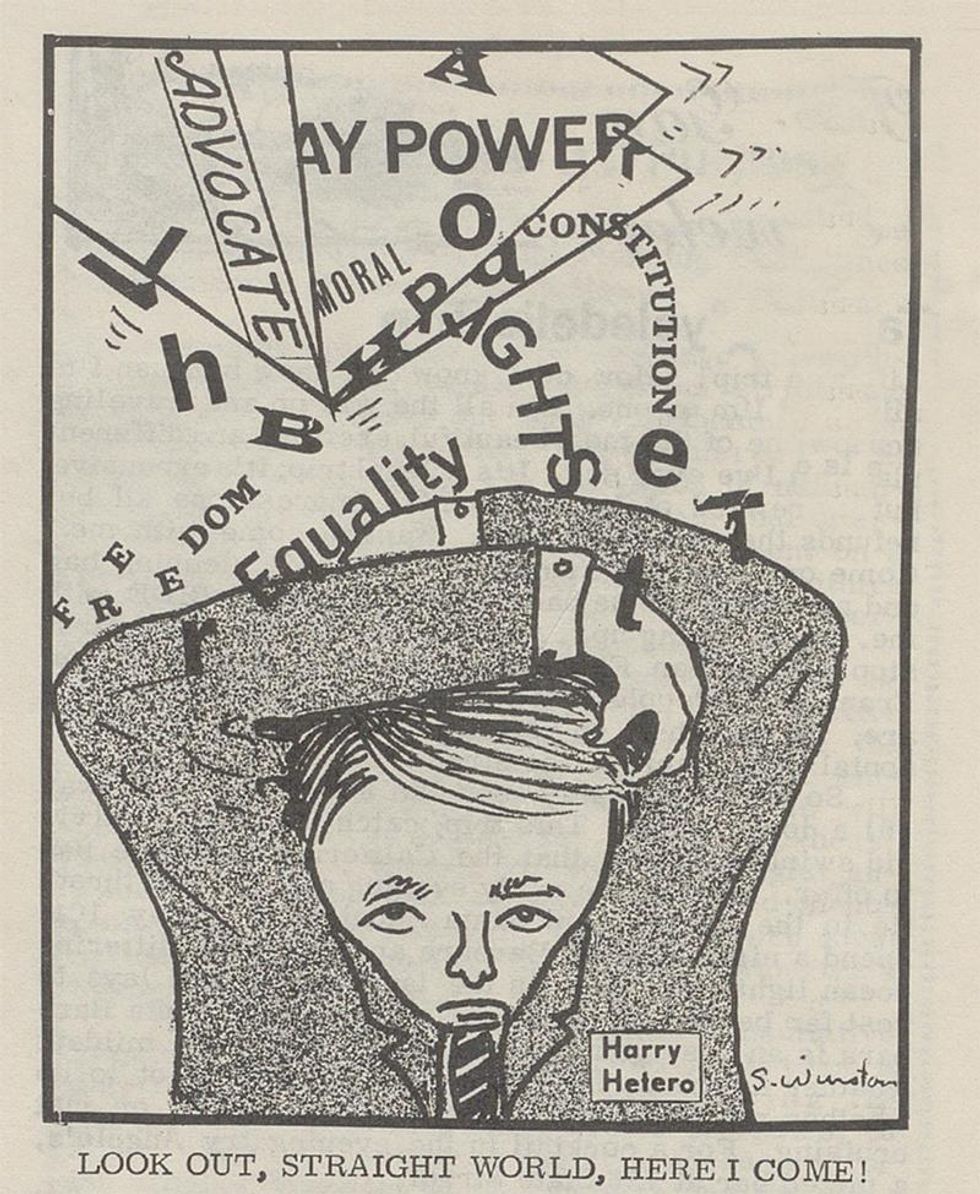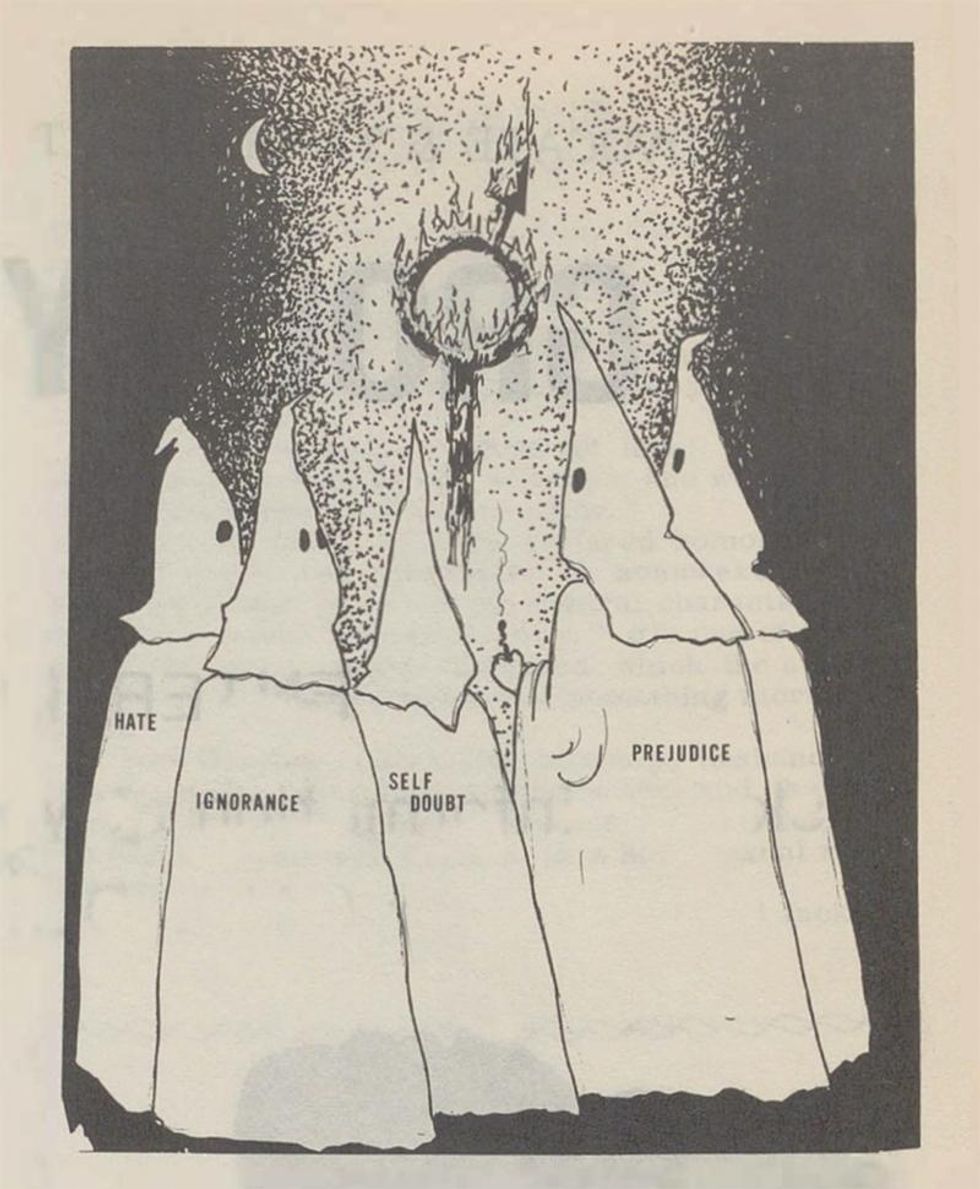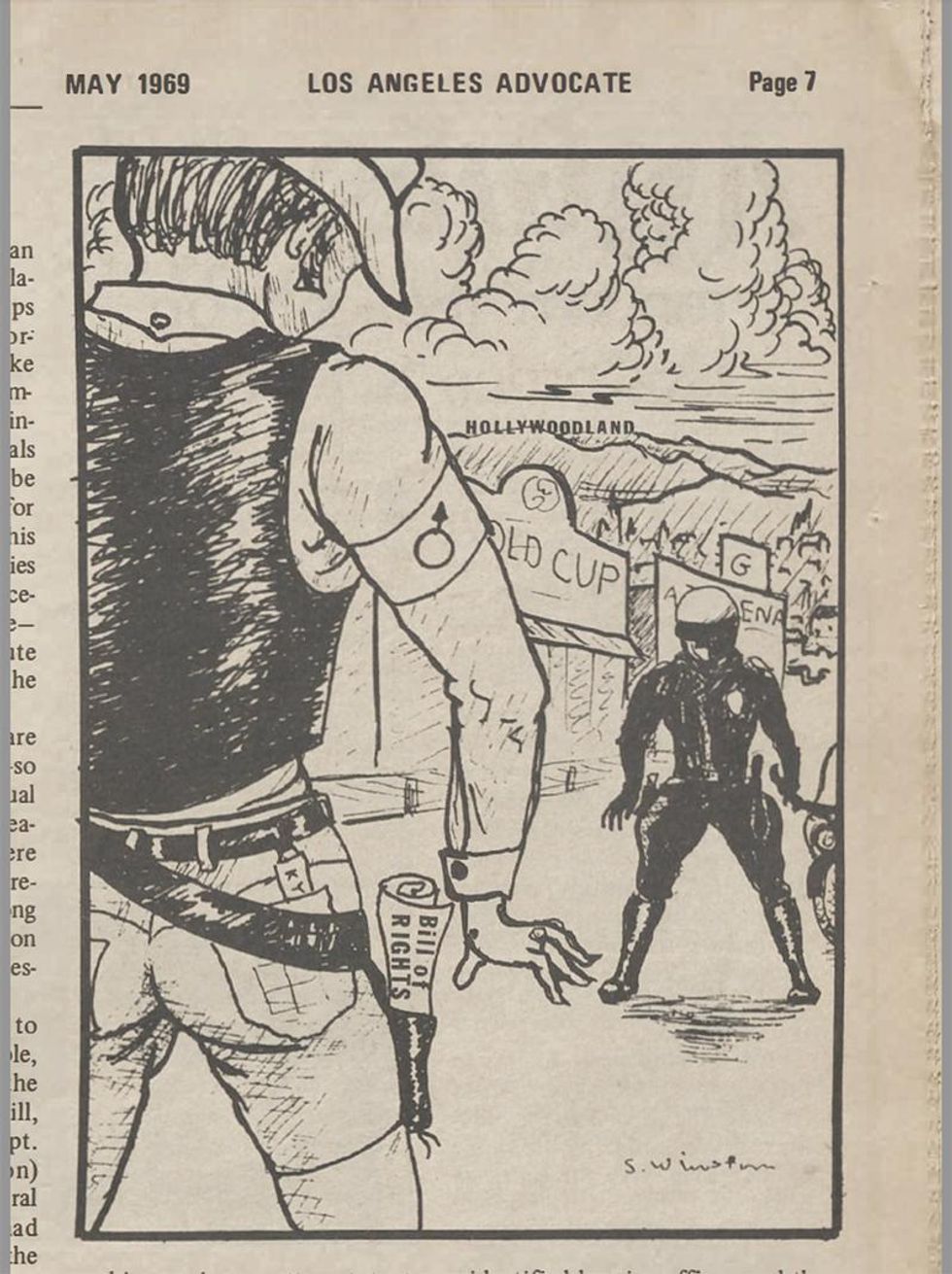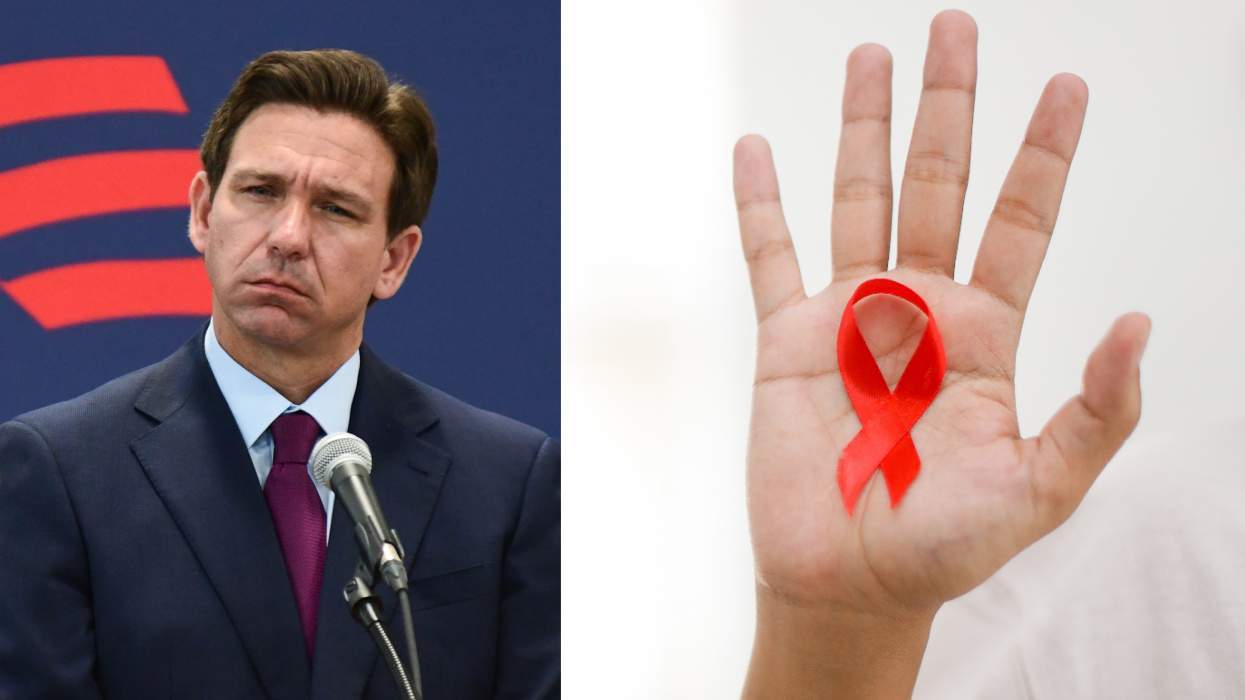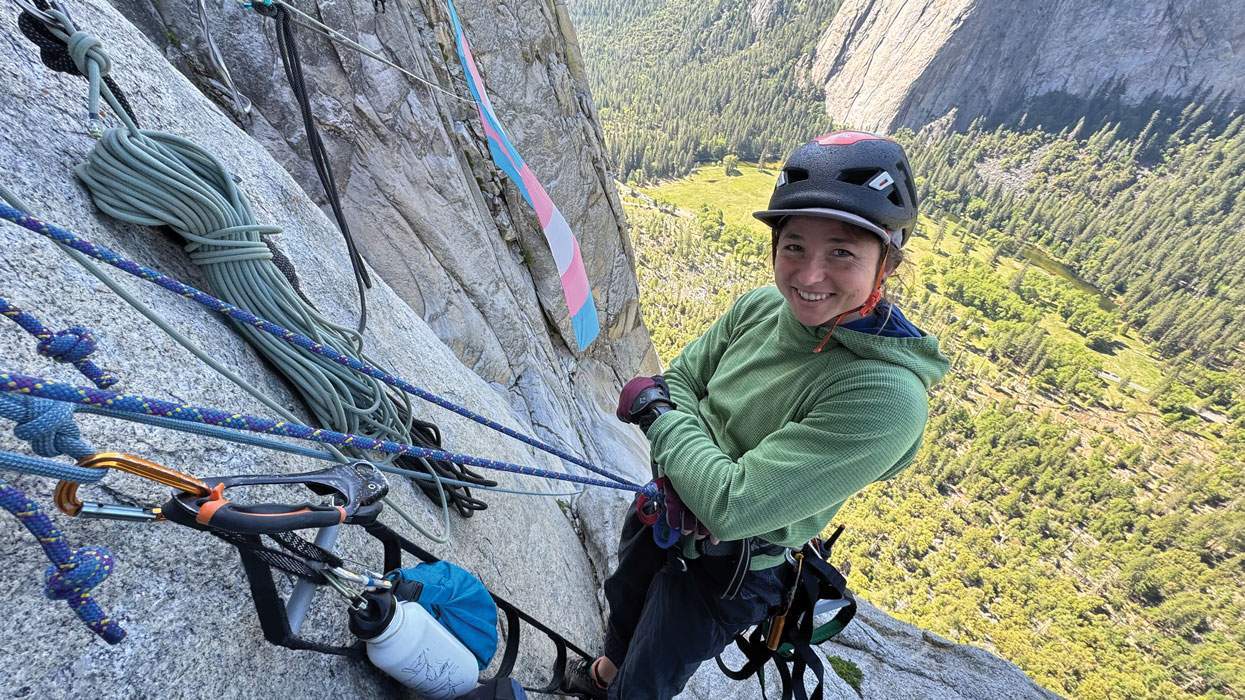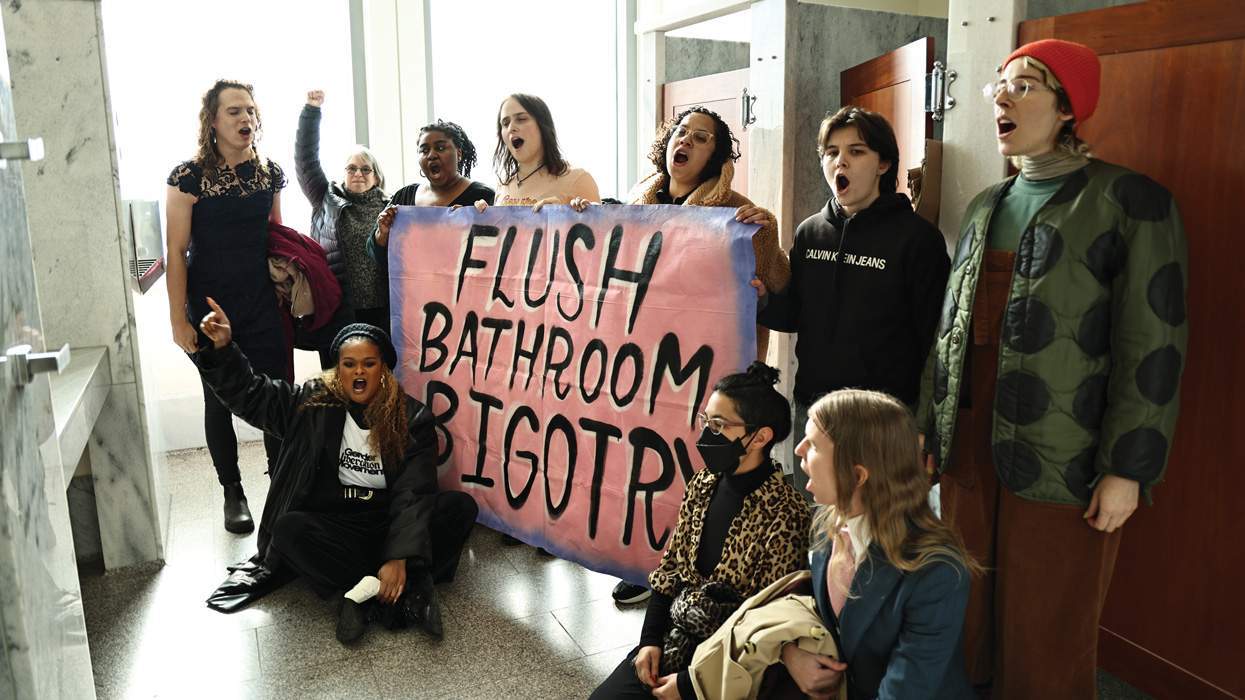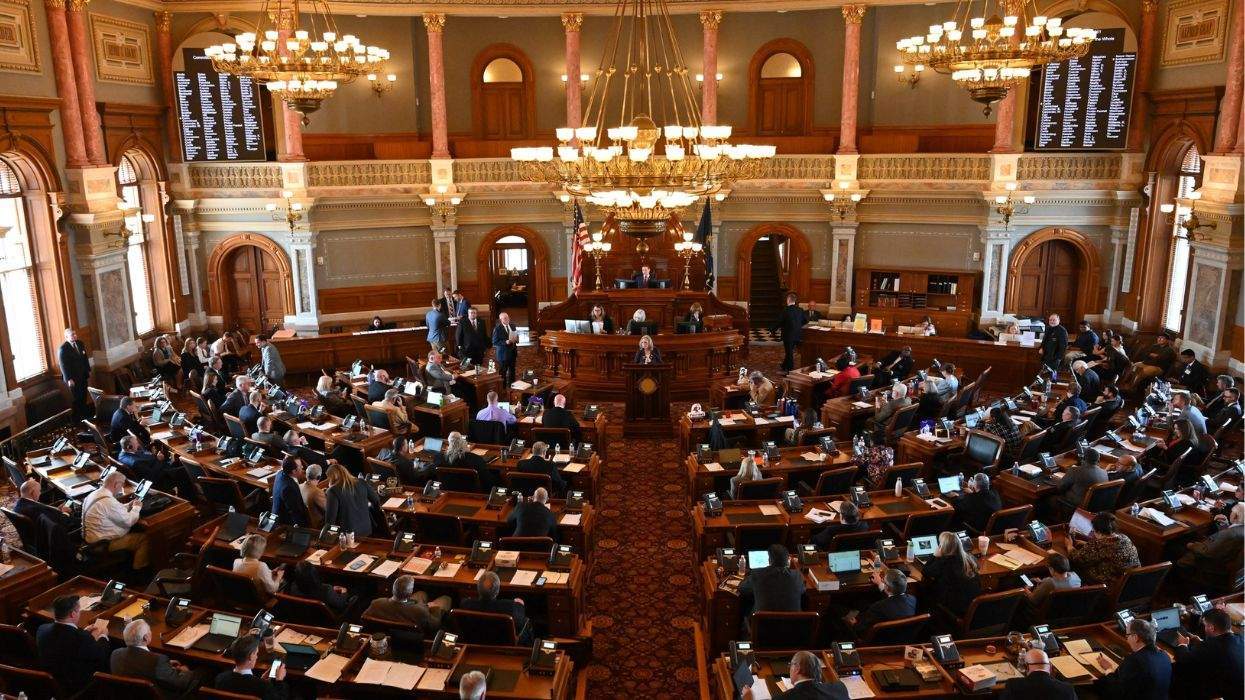When The Advocate first debuted in September 1967, it did so in the wake of violent, anti-LGBTQ+ police raids in Los Angeles -- Cooper Do-nuts (1959), New Faces and Black Cat Tavern (both 1967) -- and at San Francisco's Compton's Cafeteria (1966). After the Black Cat raid and the protests of police brutality that followed, the early gay activist group, PRIDE, launched a newsletter that became, at first, The Los Angeles Advocate and later just The Advocate. (PRIDE stood for Personal Rights in Defense and Education.)
The Advocate's stated purpose was, "To publish news that is important to the homosexual -- legal steps, social news, developments in the various organizations...at the same time, The Advocate will present a generous portion of feature material to entertain, to inform, and perhaps to provoke."
Right alongside the editorial announcing the paper's purpose, and just above the letters section, was the first cartoon to appear in The Advocate.
"Look out, straight world, here I come" (from September 1967)
The cartoon was the brainchild of John Sam Allen. Like most everyone associated with the early Advocate, John Sam Allen used pseudonyms. Sam's cofounders of The Advocate transformed from Richard Mitch into Dick Michaels and Bill Rau to Bill Rand, and early contributor A.J. Laurent to P. Nutz.
Pseudonyms were essential to avoid retribution from law enforcement and the public. In a 2007 blog marking The Advocate's 40th anniversary, Laurent wrote, "It was dangerous to be a 'pervert' prior to the liberation movement. You didn't use your real name for fear of reprisals, not only harassment by the LAPD, but the ever-present possibility of losing your day job, family, and friends."
So, John Sam Allen became Sam Allen, Sam, S. Winston, and Sam Winston. Sam's cartoons became a popular feature of The Advocate because they distilled complex issues and reactions to current events into a single frame.
"Klan comic" (from July 1968)
While other artists would become more famous and iconic for their work in The Advocate (Alison Bechdel, Howard Cruse, and Joe Johnson, for instance), Sam Allen established the foundation for them to build upon. His comics poked fun and provoked laughter (as in his surprised Santa panel), but also reflection. They were often as effective as The Advocate's overtly political articles, and like New Yorker comics (which they resembled), they were cut out and shared among the LGBTQ+ community and beyond. Soon the paper began to attract additional cartoonists, and Allen withdrew from the task.
Despite extensive research, it's impossible to determine exactly what prompted his leaving. In 1968, PRIDE fizzled out and Mitch and Rau essentially bought the publication from the organization (for one dollar) to keep it going. The next year, it went national. And by 1970, it had 40,000 copies per issue shipping out across the country.
The larger the paper grew, the smaller Allen's involvement became, until he moved to San Francisco and stopped contributing entirely around March of 1969. By then, instead of only featuring a single cartoon, The Advocate had several cartoons, illustrations, and other graphic images throughout the paper. The Klan (above, from July 1968) was Allen's final original cartoon, but the final comic to be signed by S. Winston ran in May 1969. It was a reprint of a comic Allen drew for the second issue of The Advocate (October 1967), featuring an Old West-style shootout between a Los Angeles Police Department officer and a man armed with the Bill of Rights rather than a pistol. The Advocate reran the comic to mark the end of Allen's time with the paper, but also because the comic neatly captured the long-running and ongoing fight for civil rights against law enforcement.
"Gunfire comic" (from May 1969)
While Allen was an essential part of The Advocate's birth, unfortunately, his legacy has almost entirely disappeared. If Allen's name is mentioned at all, it is as a "talented artist and cartoonist with an off-beat sense of humor. He knew graphics and could operate a printing press" (as Mitch said at the third national convention of the Gay Press Association in 1983). Indeed, it was Allen's job writing for General Hospital (alongside Rau) at ABC that provided access to a printing press. It was his know-how that organized the layout and design and ultimately surreptitiously printed the first months of the fledgling paper. What's left out in Mitch's reflection is that Allen is also the person who came up with the name The Advocate, wrote a very popular column called Bead Reader, and did all the graphics and cartoons to launch the title, which kicked off a lasting tradition and an important piece of the publication's identity. If that weren't enough, Allen was also responsible for creating and running the Groovy Guy contest -- a gay male pageant that began in 1968 and ran through 1991 -- and worked hard to create a community beyond the paper itself.
Unfortunately, Sam couldn't see the impact his work had on artists and the community, because he died by suicide on December 15, 1970. His comics remain a testament to his legacy, and they continue to resonate loudly all these years later. Though Allen wrote them in reaction to specific events in the late 1960s, because LGBTQ+ people continue to battle discrimination and police brutality, his cartoons are as relevant today as ever.
This story is part of The Advocate's 2022 Entertainment Issue, which is out on newsstands April 2, 2022. To get your own copy directly, support queer media and subscribe -- or download yours for Amazon, Kindle, Nook, or Apple News.
